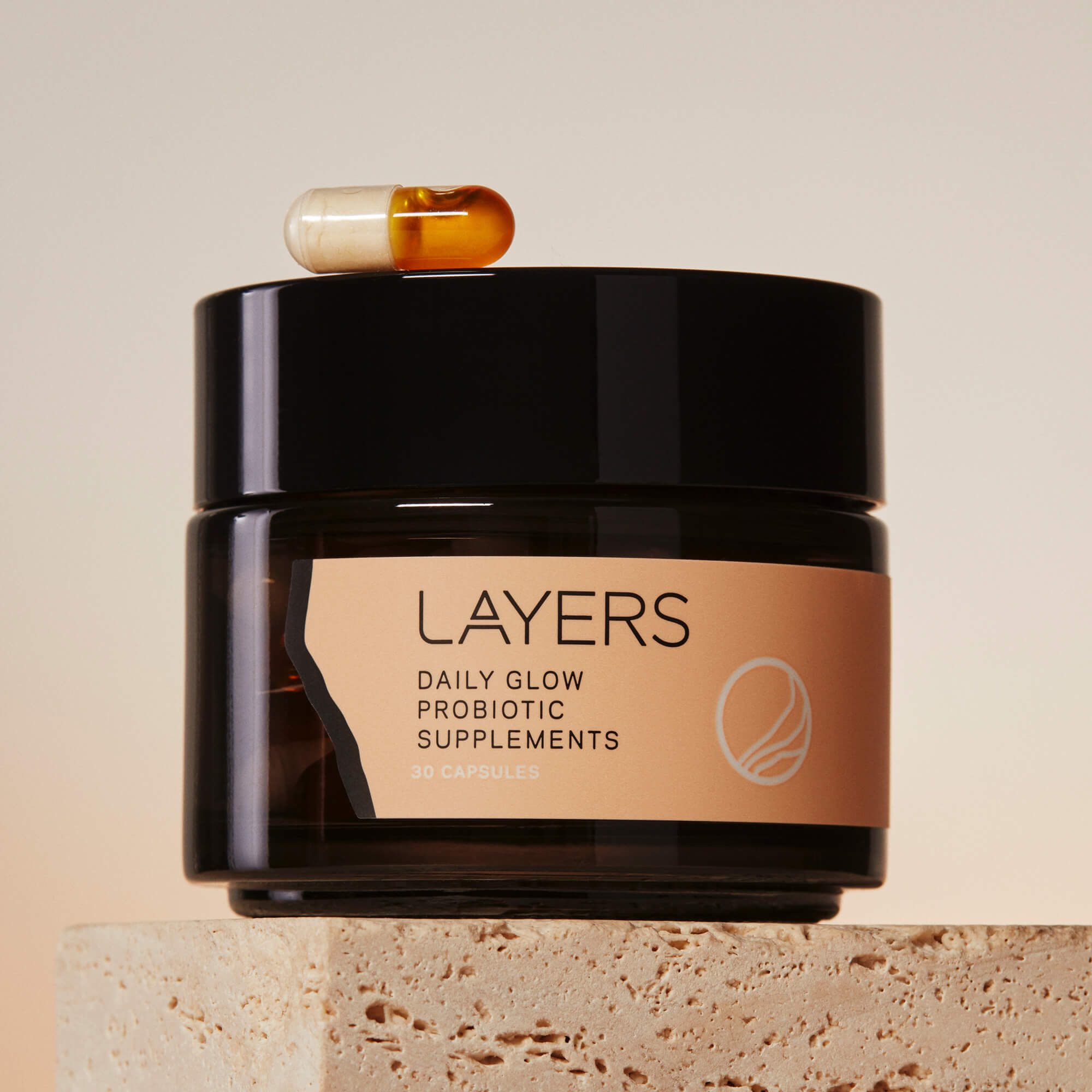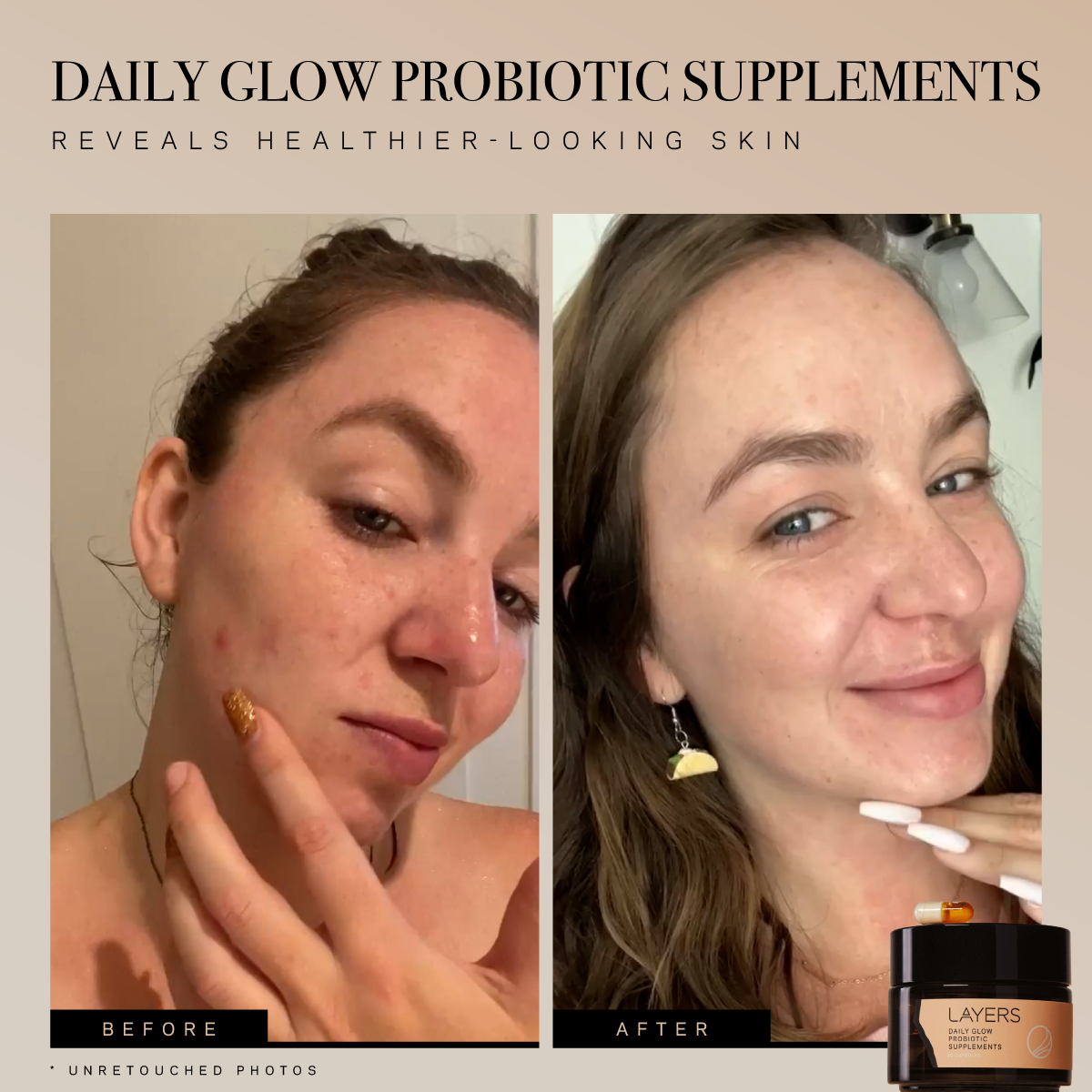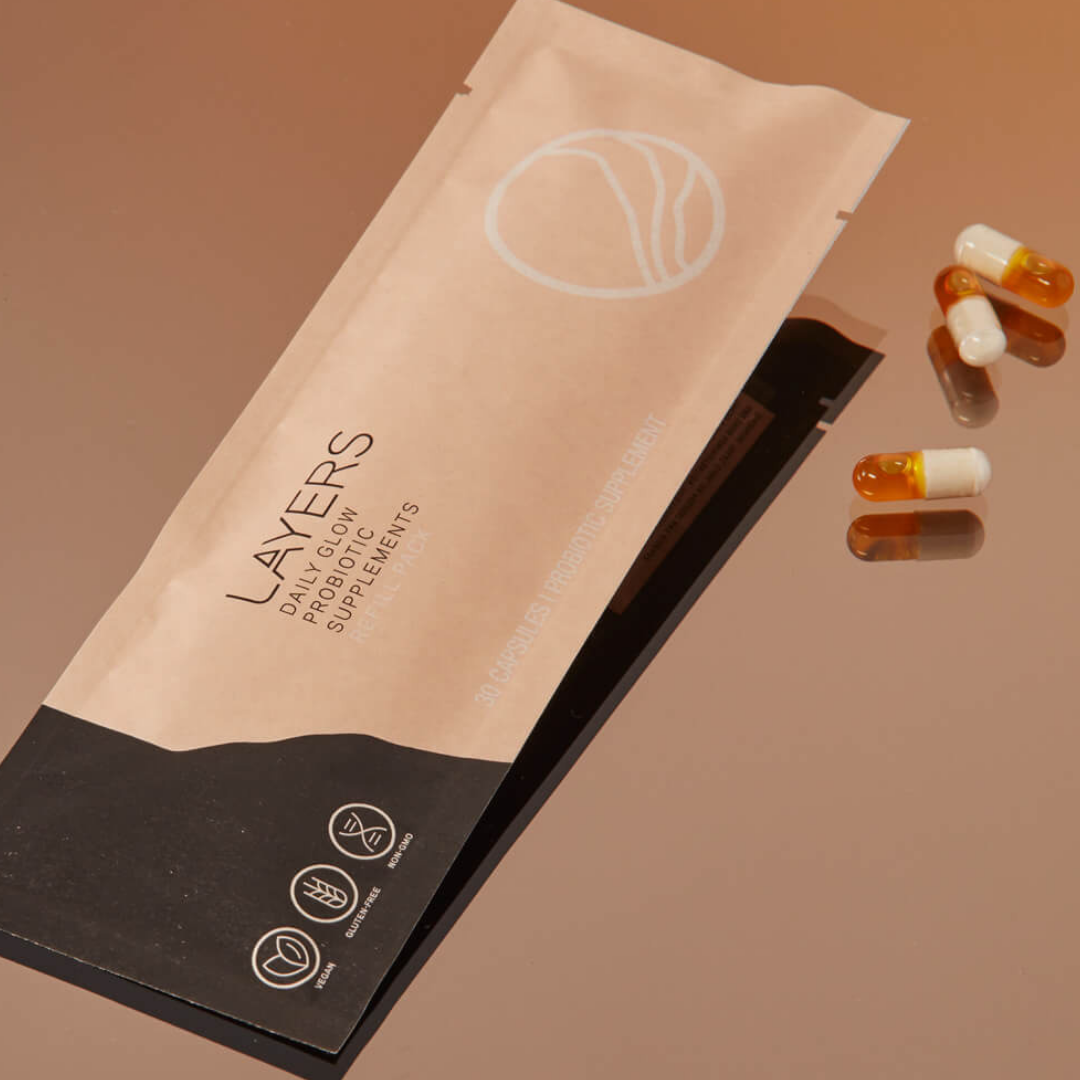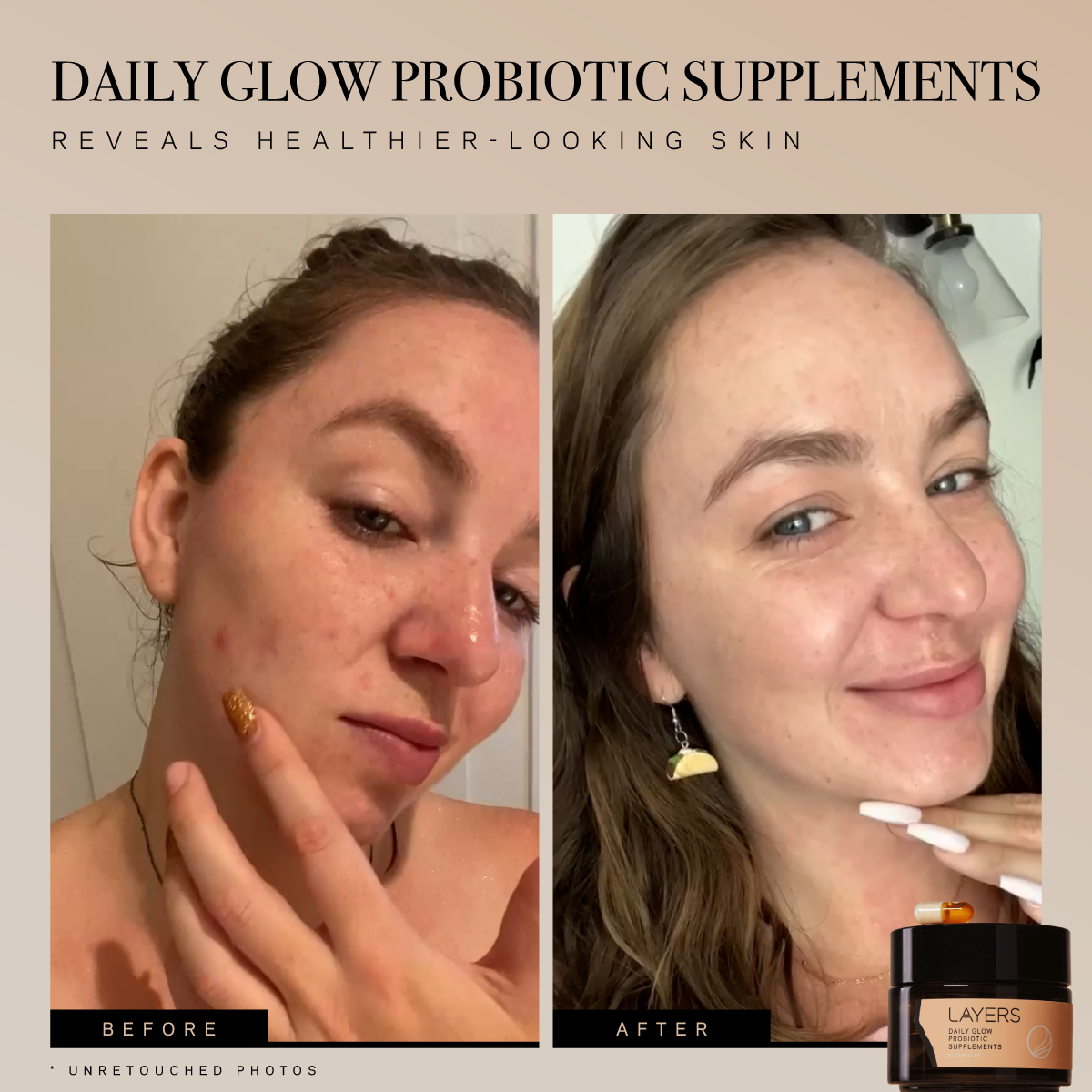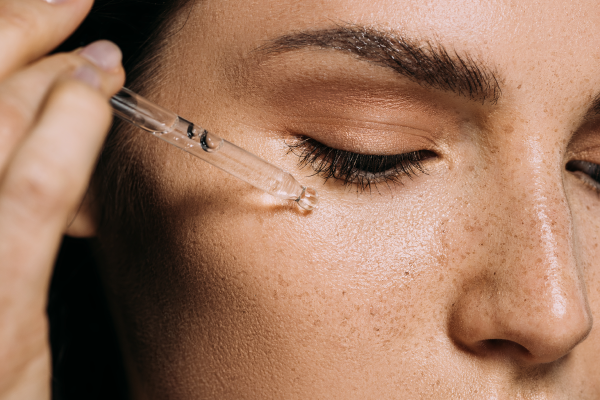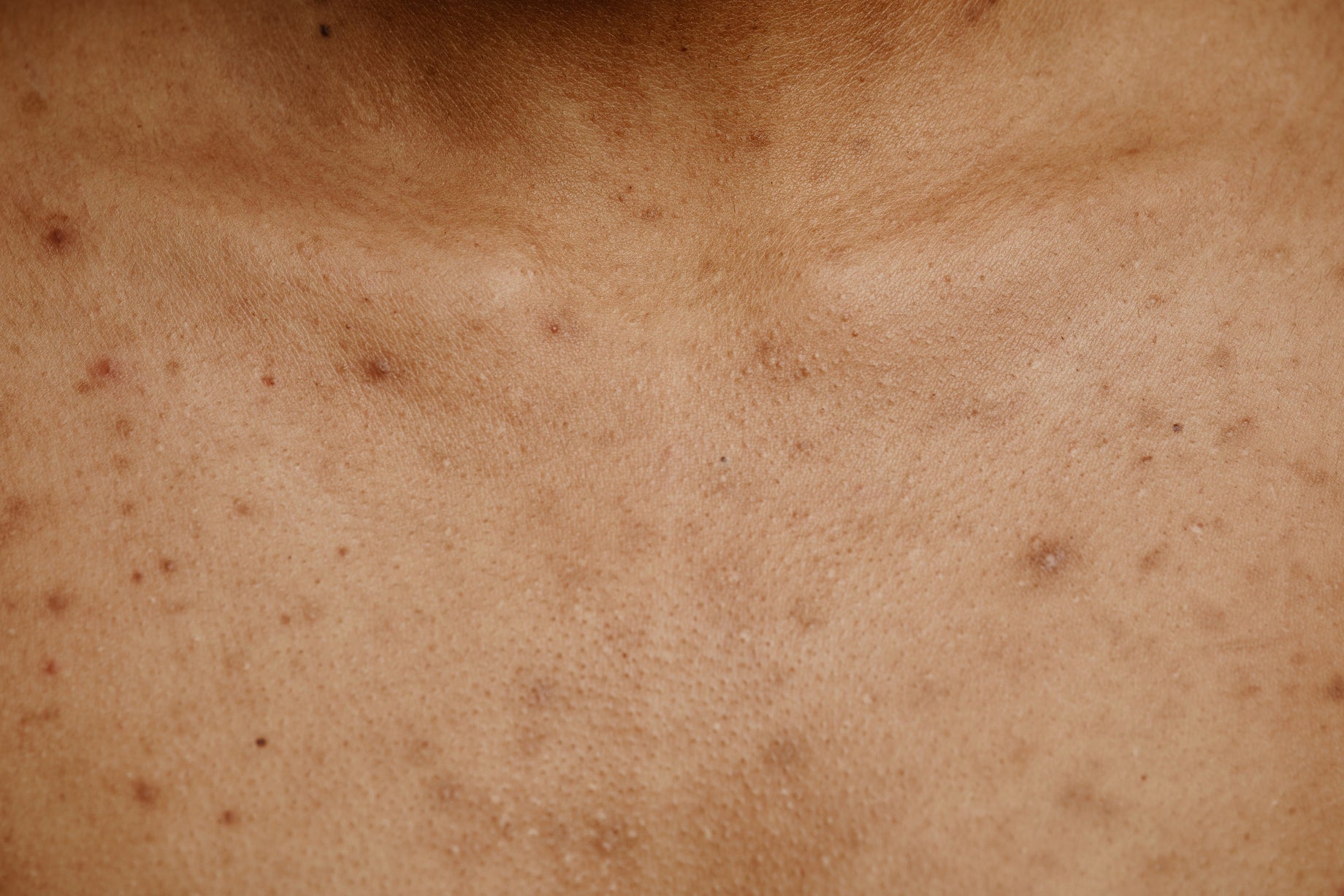Slugging is a slippery slope. Here’s what you need to know before slathering up.
At this point, you probably already know what slugging refers to. It’s the outrageously gooey act of slathering a heavy-duty petroleum jelly all over your face before you go to bed every night. You know, like slugs do. Apparently.
The point is to lock in moisture and prevent the previous layers of products from evaporating away when you sleep. Thus, gaining the biggest benefit possible from those pricey nighttime serums and solutions. If you’ve seen an abundance of ultra-glistening faces bombarding your social media feeds, it’s easy to see that everyone is doing it. This begs the question…should you be slugging, too?
Let’s dive into what it is, why people are suddenly all about it, whether or not it actually works, and most importantly, if it’s really a good idea to be rubbing this slippery stuff on your skin every night.
IS SLUGGING REALLY A NEW THING?
No, it’s not. In fact, user-favorite petroleum brands like Vaseline and Aquaphor have been staple products in both the Black and Latinx communities as moisturizers for decades. Dermatologists have long been using it to treat eczema, psoriasis, and other dry skin conditions. The bottom line: it’s not new. It’s just trending.
A lot of people credit its sudden attention to the earlier K-beauty trend that’s been sweeping the beauty world. That’s the famous layering beauty routine from South Korea. According to The Washington Post, the term slugging first surfaced in the United States in a Reddit post back in 2014. But, they dug deeper, discovering that it goes back even further:
“In the 15th century, members of the Native American Seneca tribe, who dug oil pits in northwestern Pennsylvania, used petroleum jelly on human and animal skin to protect wounds, stimulate healing and keep the skin moist. In the late 19th century, American chemist Robert Chesebrough, visiting oil fields in the same area of northwestern Pennsylvania, observed oil workers applying the residue from their oil drills on their wounds. Chesebrough brought a sample back to his Brooklyn lab, purified it, tested it on his self-inflicted wounds, and in 1870 branded his “miracle jelly” as Vaseline.”
DOES IT WORK?
There’s no denying the evidence that it’s an ultra-effective occlusive. Occlusives are oils and waxes that form a physical barrier, protecting your skin from losing moisture and aiding healing. A lot of blogs point to a well-known study showing that applying petroleum reduces transepidermal water loss (TEWL) by 99% and another in which it demonstrated anti-microbial properties.
Slugging helps your other skin care products like serums and moisturizers penetrate more deeply, by preventing evaporation. The thick barrier layer keeps dirt and bacteria out, as long as your face is squeaky clean before you apply it.
BUT BEFORE SLUGGING…READ THIS
If you suffer from a skin condition, beware. If you’re prone to oiliness, breakouts, blackheads, milia, blemishes, or have sensitive skin, slugging might not be for you. Petroleum jelly can exacerbate breakouts. Some studies have found that it can also cause epidermal stress, causing skin inflammation and clogged pores. It has also earned a hazard ranking of 4 in the EWG Skin Deep Database, noting a moderate concern over non-reproductive organ system toxicity and a high-level contamination concern.
The primary contaminant concern for petroleum is that it might carry polycyclic aromatic hydrocarbons (PAHs), contaminants linked to cancer. The European Union, which is known for having very strict cosmetic safety standards, has restricted the use of petrolatum in cosmetics and set a PAH limit. Petroleum-based products can also contain Mineral Oil Aromatic Hydrocarbons (MOHA) and polyaromatics, which studies show may be carcinogenic. Ultimately, it depends on the refinement process of your petroleum of choice, so choose a trusted brand that’s been purified.
The FDA does regard petroleum as safe to use, but “safe” doesn’t necessarily mean that using it every day is a good idea. Compared with more natural, less processed botanicals that also contain antioxidants, you could be getting the same moisturizing benefits with things like ceramides, jojoba oil, and squalane, among others. These types of ingredients will also replenish the skin barrier and give you that locked-in moisture effect without potentially clogging the pores or leaving a greasy residue.
When it comes to pairing petroleum with certain serums, like retinol or vitamin C, you should use extreme caution. This level of occlusive will intensify the side effects, which could irritate your skin.
IS PETROLEUM SAFE FOR THE ENVIRONMENT?
Also known as petrolatum, petroleum is made up of a mixture of complex hydrocarbons that are sourced by dewaxing crude oil. Meaning, it’s a by-product of the fossil fuel industry, so it’s not exactly eco-friendly. With 25% of all U.S. greenhouse gases coming from crude oil drilling, starting a petroleum-based slugging habit now might not be the best thing to do if you’re trying to adhere to a more environmentally conscious beauty routine.
Petroleum also isn’t biodegradable, like its more natural alternatives. When disposed of, it can prohibit soil aeration and prevent the release of carbon, which contributes to global warming. This environmental contamination threatens biodiversity as it pollutes soil, water, and air through stages of the petroleum extraction, purification, and disposal processes.
ENVIRONMENTALLY FRIENDLY ALTERNATIVES TO PETROLEUM
You don’t have to sacrifice the benefits of an occlusive if you want to be a better friend to the planet. Plant-based ingredients offer a more sustainably sourced slugging option. Derived from renewable sources like bee’s wax, cocoa, olive oil, and shea butter, these materials can minimize the environmental impact of your beauty routine and keep your skin slugged.
If you’re looking for the closest thing to petroleum without the environmental price tag, Waxelene is one of the most popular non-comedogenic alternatives. It’s a combination of soy oil, beeswax, vitamin E, and rosemary oil. When you’re on the hunt for a powerful occlusive, look for products with these ingredients:
-
Beeswax is a humectant that naturally locks in moisture, giving you that slug-like occlusive barrier layer. Additionally, it has anti-inflammatory and anti-bacterial properties and a long history of treating skin issues like eczema and psoriasis.
-
Olive oil is a natural, plant-based occlusive that contains vitamins A, E, and polyphenols. These can help with wound healing and provide anti-aging benefits by protecting the skin against free radical damage.
-
Almond oil, despite its name, is non-greasy, and an excellent choice for moisturizing and softening skin. It’s high in oleic, linoleic, and other fatty acids, and unlike petroleum, it’s safe to use for those with acne-prone skin, eczema, or dry, chapped skin.
TO SLUG OR NOT TO SLUG
If slathering a byproduct of crude oil onto your skin seems like a not-so-good idea, you’d be justified in your skepticism. We’ve already covered the toxicity concerns and the environmental issues surrounding petroleum. But you also have to consider the effects of a heavy occlusive sitting on top of your skin for prolonged periods of time. It prevents moisture evaporation for better or…sometimes for worse. That impenetrable layer won’t allow your skin to draw moisture in, and it can trap sebum and bacteria, preventing the skin from expelling toxins.
Aside from safety and environmental considerations, slugging is a technique best suited to those with dry skin. You’ll just need to be sure to cleanse and remove your occlusive of choice thoroughly as you need some transepidermal water loss for healthy skin.
Ultimately, the choice is yours. But remember that the best skin is achieved through maintaining a balanced microbiome. So an inside-outside approach is key. Eat right and make sure that what you’re locking in under that occlusive is actually going to benefit your skin. Our science-backed probiotic serum infuses your skin with deep hydration and botanicals with powerful antioxidants and our moisturizer helps lock in all of those benefits while balancing your skin flora. So if you’re gonna slug, these are benefits worth slugging for.

